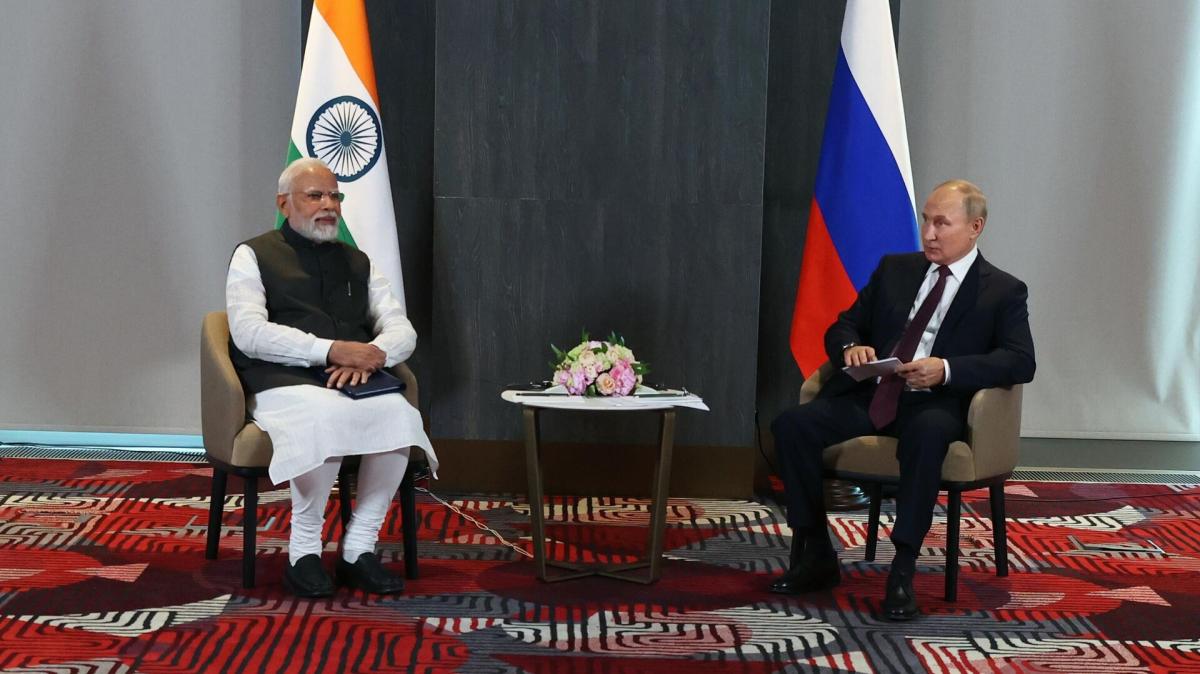According to Kommersant's foreign policy columnist, Maxim Yusin, Russia's broad retreat from Kharkiv, threatens to undermine Moscow's position among its erstwhile supporters, who had so far resisted Western pressure to break economic ties with Russia. According to Yusin, such countries had been guided by the perception that Russia retained the initiative in Ukraine and was slowly but steadily inching its way to victory. The recent military setbacks have prompted questioning whether the wager on Russia was sound. Russia's standing was partially based on its reputation for military prowess, and the success of its military intervention in the Syrian civil war boosted Russia's prestige in the Middle East. Following the recent military reverses, Russia needs a string of military victories, or one spectacular success to recoup its position.
Yusin's piece was written three days before the Shanghai Cooperation Organization summit opened in Samarkand, Uzbekistan. The summit appeared to corroborate Yusin's analysis, when India's Narendra Modi, and China's Xi Jin Ping appeared to question Putin's Ukraine policy.Modi told Putin: I know that now is not an age of wars. We have spoken about this many times, in particular in our telephone conversations. Democracy, diplomacy, and dialogue are important tools for us to find solutions. It is necessary to achieve peace in the future, and I am sure that we can discuss this.[1]
At a press conference at the summit, Putin took pains to put a positive spin on the military situation:
Question: Good afternoon, Mr President.
Could you please share your opinion on the course of the special military operation? Is it necessary to adjust the plan?
Vladimir Putin: No, the plan will not be adjusted. The General Staff takes real-time decisions in the course of the operation and some are considered a key, the main goal. The main goal is to liberate the entire territory of Donbass.
This work continues despite the attempts of the Ukrainian army to launch a counter-offensive. We are not stopping our offensive operations in Donbass itself. They continue. They continue at a slow pace but consistently and gradually, the Russian army is taking more and more new territory.[2]
Political scientist George Bovt, while rejecting the general consensus in the Western press that Modi was criticizing Putin (he believed that the above comment was an Indian offer to mediate between Moscow and Kyiv) nevertheless believed that doubts had arisen over Moscow's capabilities of effectively intervening in its own neighborhood. Now, observers from all over the world will, figuratively speaking, hold any actions of Moscow in the post-Soviet space under a magnifying glass, that will facilitate a judgement of its ability to act on several fronts at once, without loss of effectiveness due to its involvement in the conflict on Ukraine's territory.[3]
SUPPORT OUR WORK

Below is Yusin's article claiming that Moscow will now have a more difficult time finding allies, unless it militarily turns the table:

Modi meets Putin at the SCO summit (Source: Ria.ru)
"One of the most unpleasant consequences of the Russian troops’ flight in the Kharkiv Oblast (which the Ministry of Defense dubbed ‘regrouping’), may be a revised attitude towards Moscow by those states that are generally considered if not allies, then at least partners in the confrontation with the West. While not openly taking Russia’s side, over the last half year they have contributed in one way or another to easing the sanctions and political pressure on Russia.
"Some refused to support anti-Russian resolutions at the UN. Some, haven’t joined Western sanctions, despite all the entreaties, exhortations and threats from the Americans and Europeans.
"Some don’t co-ordinate their policy with the West on the oil market, continuing to co-operate with the Kremlin under the OPEC+ framework, preventing a drop in global energy prices; some continue to buy Russian oil, thereby helping Moscow replenish the budget and turn a deaf ear to the requests of the G7 member-states to join their embargo; some turn a blind eye to the 'parallel imports' [i.e., gray imports] of Western products that businessmen from Russia organized through their countries, thus satiating the domestic market and preventing consumers from fully feeling the deficit of goods.
"All this was possible as long as a perception developed in the world that Moscow, despite the spring setbacks, by and large maintains its initiative on the Ukrainian fronts, controls the situation and was slowly but steadily advancing, reaching its goals despite the increasingly tangible Western support for Kyiv. But now the world's media – and not just the Western ones– is reporting a different story.
"Newspapers and TV media in China, India, Saudi Arabia, Kazakhstan, Serbia and Turkey also can't help but notice the results of the Ukrainian counter-offensive.
"Against this backdrop, politicians in Asia, Africa, Latin America and the post-Soviet space may get the impression that Russia’s defensive line against the West is beginning to crack, that, as the saying goes, “the process has begun,” and that Kyiv and the NATO allies behind it, have managed to take the initiative for real and for a long time.
"The world respects strength and prefers dealing with winners. A military success in Syria can serve as such an example, as following it, Moscow’s prestige in the Arab countries increased noticeably. After the Kharkiv retreat, the image of the Russian army and the Russian state may change.
"And some world leaders may lose their desire to enter into conflict with the West for the sake of preserving relations with someone who is starting to suffer setbacks. The only way to avoid this would be to stabilize the situation on the front, to seize the initiative, and conduct a few successful operations (or at least one, but a spectacular one). Whether the Russian armed forces are capable of carrying out such an operation, we will find out soon enough."[4]




